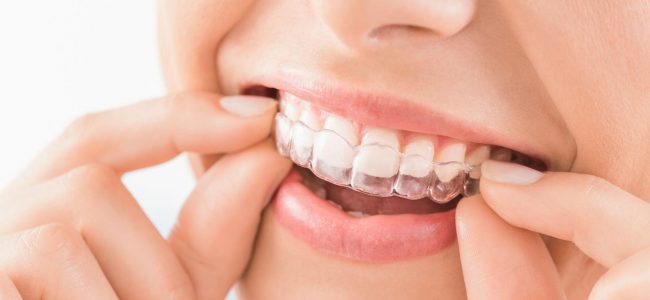Can I Get Braces at 25?
Braces are a wonderful option for someone looking to properly align their teeth. While most people associate orthodontic treatment with children and teenagers, it is never too late to start wearing braces. However, the term ‘adult braces’ is used to describe orthodontic treatment that takes place after the jawbone is fully developed and all primary teeth have erupted. A patient’s age is not a determining factor when it comes to getting braces, but the decision instead depends on when the patient is comfortable with the required commitment and when their dental health allows.
In fact, many adults are interested in getting braces later in life. Whether they had braces or retainers as younger children or not, adults are often excited at the opportunity to improve their smiles — it’s not like it’s too late! To children, crooked teeth or spacing issues aren’t nearly as bothersome as they become to adults; it makes sense why children are more prone to slack off on dental care. But as adults, particularly when you’re paying for the braces yourself, you’re more likely to keep up with proper oral hygiene and embrace the journey to a better smile and straighter teeth.
Why Get Braces?
Having crooked teeth isn’t just a problem of aesthetics. Improperly aligned teeth can lead to a higher risk of cavities due to the space created between them, creating more places for bacteria to take hold. If your teeth become severely uneven, then your jaw and speech can even be affected. The best option for correcting crooked teeth and creating a healthy, beautiful smile along with it really is braces or another form of adult aligners.
What Are the Challenges of Getting Braces at an Older Age?
There are some risks associated with older patients receiving orthodontic treatment. According to the Centers for Disease Control and Prevention (CDC), adult patients are at a higher risk of suffering from periodontal disease. Periodontal disease weakens your dental structure, making orthodontic care extremely challenging. When this condition occurs, the periodontal tissues (i.e., gums) in your mouth recede, your bone tissue erodes, and your teeth lose stability. Similar to this, the outer layers of your teeth can erode, exposing the roots of your teeth. If this condition reaches these advanced stages, you could be at a high risk of tooth loss.
Because of these potential obstacles, it’s important to speak with your dentist first. They know you well when it comes to your oral health and can be a great source of information if you’re interested in exploring options for adult braces. If your gum conditions are severe enough, they may refer you to a periodontist, who specializes in gum health, before recommending orthodontia.
It is also good to keep in mind that as an adult, the bone structures in your mouth have stopped growing, and your dental care may require additional surgery if any developmental conditions go untreated.
What Are the Benefits of Getting Braces as an Adult?
One major advantage of getting braces as an adult is the likelihood of properly caring for and maintaining them. Unlike children and teenagers, adults tend to have a greater understanding of responsibility and a larger investment, both financially and mentally, in the process. Providing proper care for your braces would translate into better results from orthodontic work.
What’s more, as an adult, there’s a lot more freedom that comes with the entire process. Unlike children and teenagers, adult patients typically get to choose the type of orthodontic care they want to receive. This means patients can opt for traditional braces, Invisalign options, or something else, giving them even more reason to be happy and excited about their orthodontic treatment.
At the end of the day, getting braces as an adult can be a much less challenging ordeal than it was as a child, and in the end, you’re left with a more confident smile that you’re more likely to take care of in the long term. Whether you are 10 or 25 or older, braces can always be a beneficial option for straightening your teeth.
